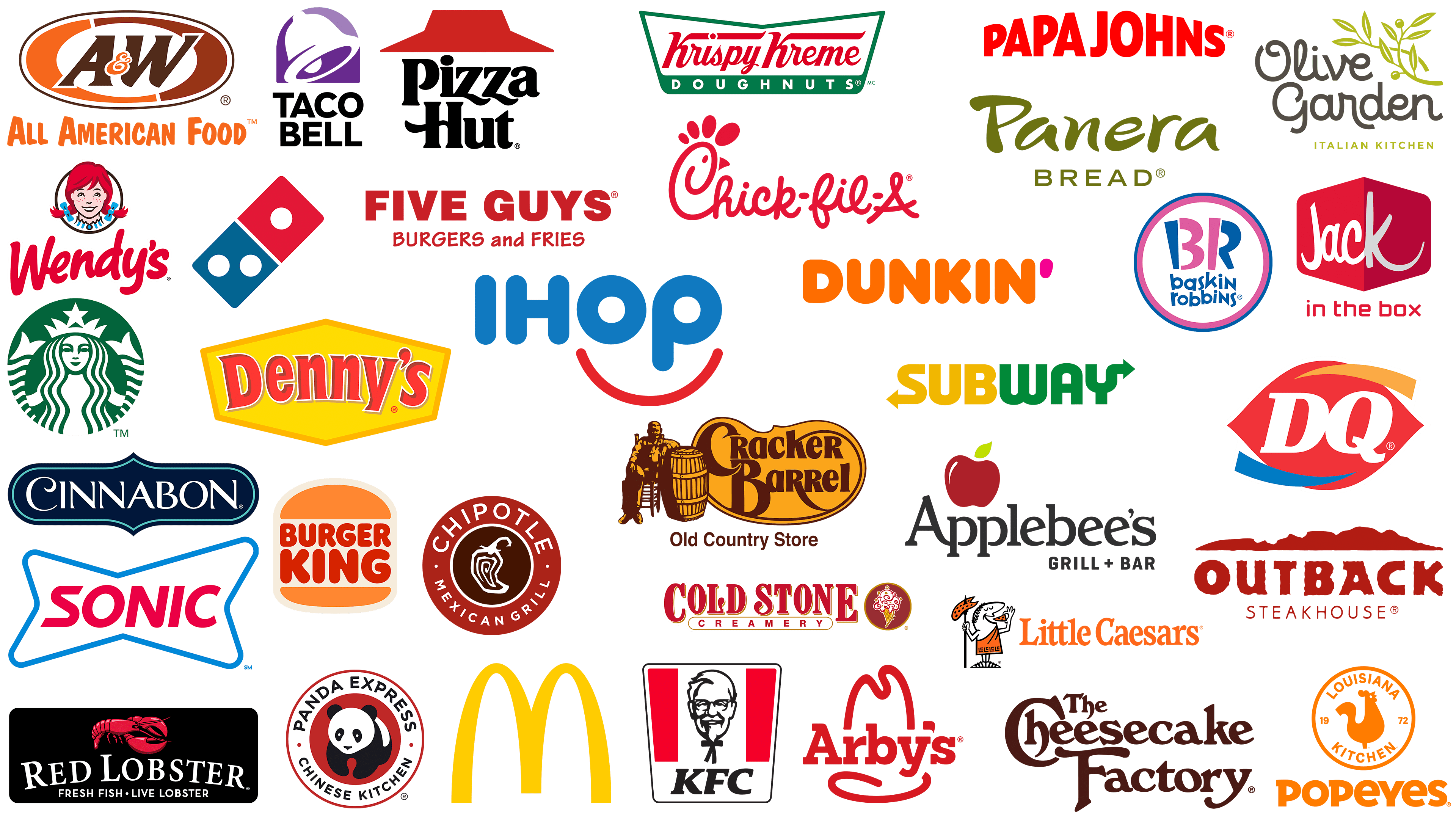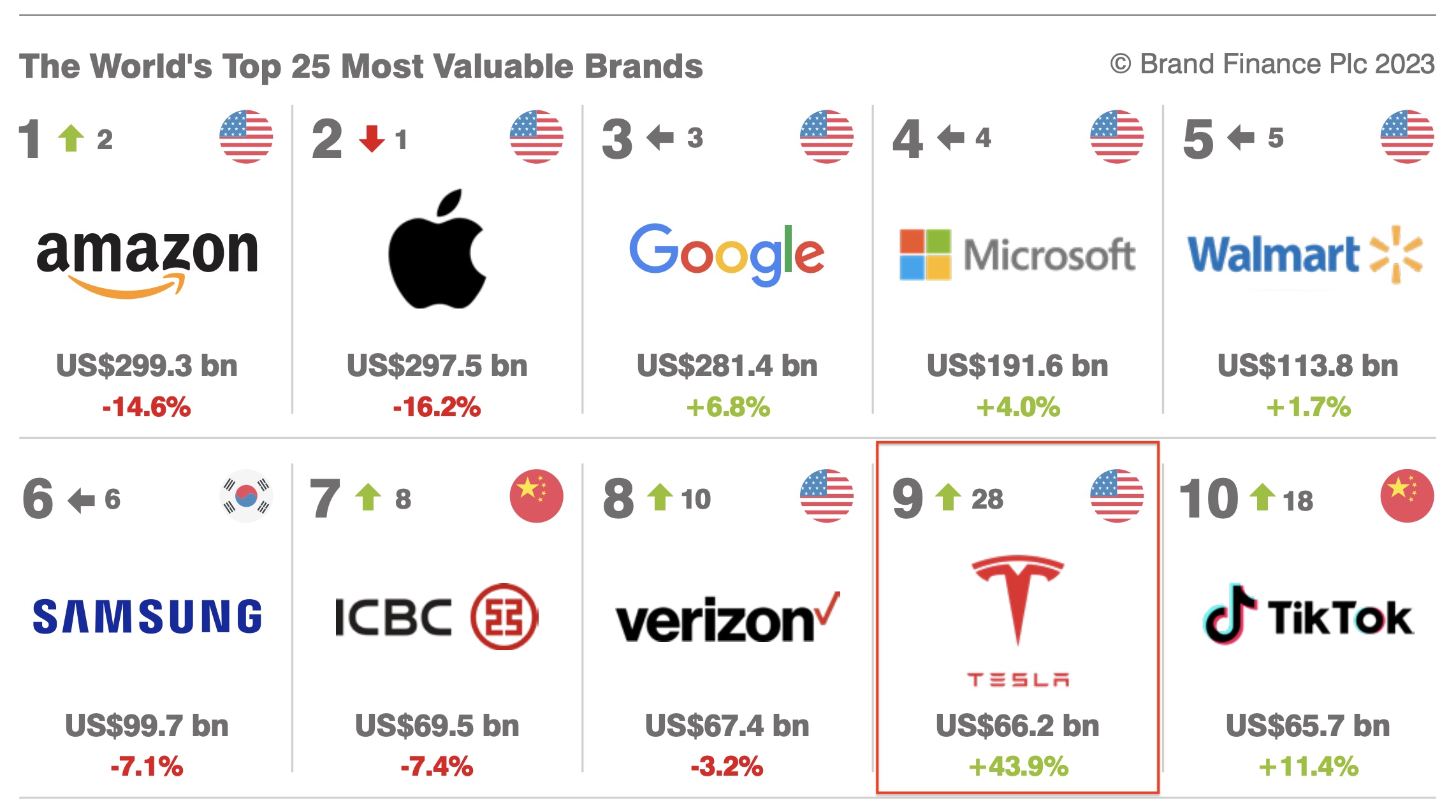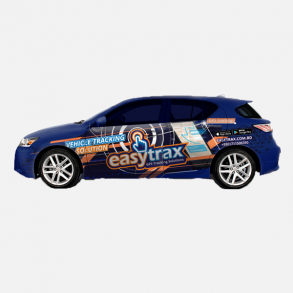Brands American Cars: A Comprehensive Guide to the Icons of American Motoring
Brands American Cars: A Comprehensive Guide to the Icons of American Motoring cars.truckstrend.com
From the roaring V8s of muscle cars to the rugged capability of pickup trucks and the sleek innovation of electric vehicles, American car brands have carved an indelible mark on the global automotive landscape. More than just manufacturers, these brands represent a unique blend of power, practicality, and pioneering spirit, deeply intertwined with the American identity itself. This comprehensive guide delves into the rich history, diverse offerings, distinctive characteristics, and future trajectory of American car brands, offering insights for enthusiasts and prospective buyers alike.
The Enduring Legacy of American Automotive Brands
Brands American Cars: A Comprehensive Guide to the Icons of American Motoring
The story of American cars is one of innovation, ambition, and cultural impact. For over a century, brands like Ford, General Motors (GM), and Chrysler (now part of Stellantis) have not only moved people but also shaped economies and lifestyles. Henry Ford’s revolutionary assembly line democratized car ownership, while the post-war boom saw the rise of iconic designs and powerful engines. American brands pioneered concepts like the V8 engine, the station wagon, the muscle car, and later, the SUV and the modern pickup truck, often setting global trends.
This legacy is built on a foundation of engineering prowess, a commitment to mass production, and an understanding of the American consumer’s desire for space, power, and utility. Today, American car brands continue to evolve, embracing new technologies and market demands while retaining the core values that define them.
Key American Automotive Brands and Their Diverse Offerings
While often referred to as the "Big Three," the landscape of American automotive brands is more diverse than ever, encompassing a spectrum from mainstream workhorses to luxury vehicles and cutting-edge electric innovators.
The Traditional Powerhouses (The "Big Three"):
-
General Motors (GM): A global giant with a storied history, GM operates several distinct American brands:

- Chevrolet: The quintessential American brand, offering a vast range from compact cars (though fewer now), popular SUVs (Equinox, Tahoe, Suburban), and the best-selling Silverado pickup truck, to performance legends like the Corvette and Camaro. Chevy often balances value with capability.
- GMC: Positioned as a more premium, professional-grade counterpart to Chevrolet, GMC specializes in trucks and SUVs. Models like the Sierra pickup and Yukon SUV offer enhanced features, styling, and capability for those seeking a step up in refinement.
- Cadillac: America’s luxury standard-bearer, Cadillac has a rich heritage of opulence and innovation. Today, it offers a range of sophisticated sedans (CT5), popular SUVs (XT4, XT5, XT6, the iconic Escalade), and is rapidly transitioning to an all-electric future with models like the Lyriq.
- Buick: Often seen as an entry-luxury or premium brand, Buick focuses primarily on refined SUVs (Encore, Envision, Enclave) that offer comfortable rides and upscale features, appealing to a mature and discerning demographic.

-
Ford Motor Company: A titan of industry, Ford continues to be a leader in innovation and sales.
- Ford: Known globally for its robust F-Series pickup trucks (the best-selling vehicle in America for decades), Ford also boasts iconic models like the Mustang performance car, popular SUVs (Explorer, Escape, Bronco, Bronco Sport), and the compact Maverick pickup. Ford is aggressively pursuing an electric future with models like the F-150 Lightning and Mustang Mach-E.
- Lincoln: Ford’s luxury division, Lincoln, emphasizes elegant design, serene interiors, and advanced technology. Its lineup primarily consists of upscale SUVs like the Navigator, Aviator, Nautilus, and Corsair, offering a sophisticated American luxury experience.

-
Stellantis (formerly Fiat Chrysler Automobiles – FCA): A multinational automotive corporation formed from the merger of FCA and PSA Group, it houses several iconic American brands:
- Chrysler: Historically a full-line manufacturer, Chrysler’s current American lineup focuses on the highly acclaimed Pacifica minivan (including a plug-in hybrid option) and the full-size 300 sedan, emphasizing practicality and comfort.
- Dodge: Synonymous with performance and muscle, Dodge continues to offer high-horsepower sedans (Charger) and coupes (Challenger), alongside the versatile Durango SUV. Dodge vehicles are known for their bold styling and powerful engines.
- Jeep: Perhaps the most globally recognized American brand for off-road capability, Jeep builds legendary 4×4 vehicles. From the iconic Wrangler to the popular Grand Cherokee and Wagoneer/Grand Wagoneer luxury SUVs, Jeep offers adventure and rugged dependability.
- Ram: Spun off from Dodge, Ram is a dedicated truck brand renowned for its robust pickups (Ram 1500, 2500, 3500). Ram trucks are celebrated for their comfort, impressive towing and hauling capabilities, and powerful engine options.
The New Wave: Electric Innovators
- Tesla: A true disruptor, Tesla redefined the electric vehicle market and challenged traditional automotive manufacturing. Known for its long-range EVs, advanced technology, and autonomous driving capabilities, Tesla offers models like the Model 3 (sedan), Model S (luxury sedan), Model Y (compact SUV), Model X (luxury SUV), and the upcoming Cybertruck.
- Lucid Motors: A nascent luxury EV manufacturer, Lucid aims to compete at the very high end of the market with its Lucid Air sedan, known for its exceptional range, performance, and luxurious interior.
- Rivian: Focusing on electric adventure vehicles, Rivian has launched the R1T pickup truck and R1S SUV, designed for off-road capability and outdoor lifestyles, appealing to a niche market of environmentally conscious adventurers.
Distinctive Characteristics and Appeal of American Cars
American cars possess a unique DNA that sets them apart:
- Power and Performance: Historically, American cars have been synonymous with powerful engines, particularly V8s. From the roaring muscle cars of the 60s to today’s high-performance trucks and SUVs, a strong emphasis on horsepower and torque remains.
- Size and Space: American vehicles often offer generous interior space, comfortable seating, and ample cargo capacity, reflecting a preference for larger vehicles suitable for long drives and family needs.
- Durability and Capability: Especially in the truck and SUV segments, American brands are known for building robust vehicles capable of heavy-duty towing, hauling, and off-road adventures.
- Technology and Innovation: American brands have consistently pushed technological boundaries, from early infotainment systems to advanced driver-assistance features (ADAS) and now, leading the charge in electric vehicle development and autonomous driving research.
- Design Philosophy: American car design often features bold, assertive lines, a strong road presence, and distinctive styling that can range from rugged and utilitarian to sleek and luxurious.
- Value Proposition: For many models, particularly mainstream sedans, trucks, and SUVs, American brands offer competitive pricing, strong feature sets for the money, and often good resale values for popular models.
Important Considerations When Buying an American Car
Choosing an American car involves weighing several factors to ensure it aligns with your needs and lifestyle:
- Fuel Economy: While traditionally associated with lower fuel efficiency due to larger engines, modern American cars, especially those with smaller turbocharged engines, hybrids, and EVs, have significantly improved. Research specific model MPG ratings.
- Maintenance and Parts: With extensive dealer networks and a large aftermarket, parts and service for American cars are generally readily available and often more affordable than for some imported brands.
- Resale Value: Popular models, particularly pickup trucks and certain SUVs (like Jeep Wranglers and Grand Cherokees), tend to hold their value very well. Performance vehicles and luxury models can vary.
- Safety Features: Modern American vehicles are equipped with comprehensive active and passive safety features, often achieving top safety ratings from organizations like the IIHS and NHTSA.
- Driving Dynamics: American cars offer a wide range of driving experiences, from the plush, comfortable ride of a Cadillac to the nimble handling of a Corvette, or the rugged off-road prowess of a Jeep. Test driving is crucial to find the right fit.
- Electric Vehicle Transition: If you’re considering an EV, American brands like Tesla, Ford, GM, Lucid, and Rivian are at the forefront, offering a growing selection of competitive electric options.
Tips for Choosing and Maintaining Your American Car
- Define Your Needs: Before looking, determine what you truly need: passenger capacity, cargo space, towing ability, fuel type, budget, and desired features.
- Research Thoroughly: Use reputable automotive websites, consumer reports, and owner forums to research specific models, trims, common issues, and long-term reliability.
- Test Drive Extensively: Don’t just take a quick spin. Drive the car on different types of roads, including highways and city streets, to assess comfort, handling, and visibility.
- Consider Certified Pre-Owned (CPO): CPO programs offer used vehicles that have undergone rigorous inspections and come with extended warranties, providing peace of mind similar to a new car but at a lower price point.
- Understand Ownership Costs: Factor in insurance, registration, typical maintenance costs, and potential depreciation in addition to the purchase price.
- Follow Manufacturer’s Maintenance Schedule: Regular oil changes, tire rotations, and timely service based on the owner’s manual are crucial for longevity and performance.
- Stay Informed on Recalls: Register your vehicle with the manufacturer to receive recall notifications, and address them promptly.
- Utilize Dealerships and Independent Mechanics: While dealerships offer specialized knowledge and genuine parts, independent mechanics can often provide more affordable service for routine maintenance once the warranty expires.
Challenges and Future Outlook
American car brands face a dynamic and competitive global market. Challenges include:
- Intense Competition: From established European and Asian automakers, as well as new EV startups.
- Environmental Regulations: Increasing pressure to reduce emissions and improve fuel efficiency, accelerating the shift to electrification.
- Supply Chain Disruptions: Global events and shortages (like semiconductor chips) have impacted production.
- Shifting Consumer Preferences: A global move towards smaller, more fuel-efficient vehicles, and a rapid embrace of electric mobility.
Despite these challenges, the future of American car brands is bright and transformative. They are investing heavily in:
- Electrification: Committing billions to develop new EV platforms, battery technologies, and charging infrastructure.
- Autonomous Driving: Research and development into self-driving capabilities are paramount.
- Connected Car Technology: Integrating advanced infotainment, over-the-air updates, and vehicle-to-everything (V2X) communication.
- New Business Models: Exploring subscription services, ride-sharing fleets, and innovative ownership models.
Table: Representative American Car Brands and Popular Models (Estimated Starting MSRP)
Please note: Prices are highly variable and depend on trim level, options, region, and market conditions. These are estimated starting MSRPs for base models and do not include destination fees, taxes, or incentives.
| Brand | Model Name | Type | Estimated Starting MSRP (USD) | Key Feature/Niche |
|---|---|---|---|---|
| Chevrolet | Silverado 1500 | Full-Size Pickup | $37,000 – $70,000+ | America’s second best-selling truck, strong workhorse |
| Tahoe | Full-Size SUV | $57,000 – $80,000+ | Spacious family hauler, capable, comfortable | |
| Corvette Stingray | Sports Car | $68,000 – $90,000+ | Iconic American performance, mid-engine design | |
| Ford | F-150 | Full-Size Pickup | $36,000 – $85,000+ | Best-selling vehicle in America, versatile |
| Mustang | Sports Car/Pony Car | $31,000 – $80,000+ | Enduring muscle car icon, performance options | |
| Explorer | Mid-Size SUV | $37,000 – $58,000+ | Popular family SUV, available hybrid | |
| F-150 Lightning | Electric Pickup | $50,000 – $95,000+ | Revolutionary electric truck, pro-power onboard | |
| Ram | 1500 | Full-Size Pickup | $39,000 – $75,000+ | Award-winning interior, smooth ride, strong towing |
| Jeep | Wrangler | Off-Road SUV | $32,000 – $80,000+ | Legendary off-road capability, removable top |
| Grand Cherokee | Mid-Size SUV | $40,000 – $70,000+ | Premium SUV, capable, available 3-row | |
| Dodge | Charger | Full-Size Sedan | $35,000 – $85,000+ | Powerful four-door muscle car, bold styling |
| Challenger | Sports Car/Muscle Car | $32,000 – $90,000+ | Retro styling, massive horsepower options | |
| Cadillac | Escalade | Full-Size Luxury SUV | $82,000 – $110,000+ | Opulent, tech-laden, iconic luxury SUV |
| Tesla | Model 3 | Electric Sedan | $40,000 – $60,000+ | Popular EV, long range, tech-focused |
| Model Y | Electric SUV | $45,000 – $70,000+ | Best-selling EV globally, practical, efficient | |
| GMC | Sierra 1500 | Full-Size Pickup | $40,000 – $75,000+ | Premium truck, Denali luxury trim, multi-pro tailgate |
| Chrysler | Pacifica | Minivan | $38,000 – $55,000+ | Family-friendly, available plug-in hybrid |
| Lincoln | Navigator | Full-Size Luxury SUV | $85,000 – $110,000+ | Flagship luxury SUV, spacious, refined |
Frequently Asked Questions (FAQ) about Brands American Cars
Q1: Are American cars reliable?
A1: Modern American cars have significantly improved in reliability over the past few decades. While some older stereotypes persist, contemporary models from brands like Ford, Chevrolet, and Ram often rank competitively in reliability studies, especially their trucks and SUVs. Regular maintenance is key to any car’s longevity.
Q2: Which American brand makes the best trucks?
A2: This is highly subjective and depends on specific needs. Ford’s F-Series (especially the F-150) is consistently the best-selling, known for its versatility and innovation. Ram trucks are lauded for their luxurious interiors and smooth ride. Chevrolet and GMC (Silverado/Sierra) offer strong capability and a wide range of options. All three are top contenders in their segments.
Q3: Are American muscle cars still popular?
A3: Absolutely! While the traditional V8 muscle car segment is shrinking due to electrification, models like the Ford Mustang, Dodge Challenger, and Dodge Charger continue to have a passionate following and strong sales, representing a unique segment of American performance.
Q4: What is the "Big Three" in American automotive manufacturing?
A4: The "Big Three" traditionally refers to General Motors (GM), Ford Motor Company, and what was formerly Chrysler Group (now part of Stellantis). These three companies have historically dominated the American automotive market.
Q5: Are American cars good for fuel economy?
A5: Historically, American cars were known for lower fuel economy due to larger engines. However, this has changed dramatically. Modern American vehicles offer increasingly efficient gasoline engines, a growing number of hybrid options, and a leading position in the electric vehicle (EV) market (Tesla, Ford F-150 Lightning, Chevy Bolt, etc.), making many models very competitive in terms of fuel efficiency.
Q6: What’s the future of American car brands?
A6: The future of American car brands is heavily focused on electrification, autonomous driving technology, and connected car services. They are investing billions into developing new EV platforms, battery technology, and software to lead the next generation of mobility.
Q7: Do American brands only make large vehicles?
A7: While American brands are renowned for their large trucks and SUVs, they also produce a range of smaller vehicles. Chevrolet, for instance, offers compact SUVs and EVs. Ford has the Maverick compact pickup and smaller SUVs. The market trend has shifted away from traditional sedans, but diverse options still exist across various sizes.
Conclusion: The Enduring Power of American Automotive Innovation
American car brands represent more than just vehicles; they embody a spirit of innovation, rugged capability, and a distinctive approach to automotive design and engineering. From the foundational "Big Three" to the disruptive new players in the electric vehicle space, these brands have continuously adapted, overcome challenges, and redefined what it means to drive an American car.
As the automotive world accelerates towards an electric, connected, and increasingly autonomous future, American car brands are not merely keeping pace; they are actively shaping the journey. Their commitment to power, practicality, and pioneering technology ensures that they will remain central to the global automotive narrative, continuing to inspire drivers and redefine mobility for generations to come.






